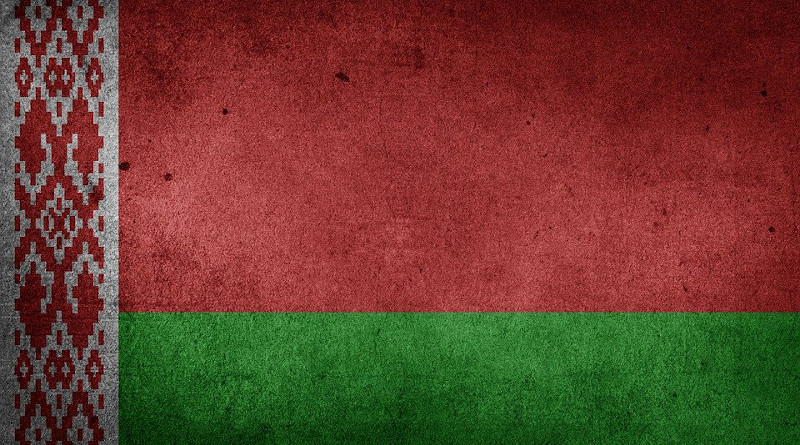Central Europe Adopts United Stance Against Belarus
By Claudia Ciobanu, Miroslava German Sirotnikova and Edit Inotai
Ahead of Wednesday’s extraordinary EU heads of state and government meeting on the political crisis in Belarus, Hungary has joined the consensus among the four Central European nations that Europe needs to take a unified and hard line against the regime of Alexander Lukashenko.
On Monday, Hungarian Foreign Minister Peter Szijjarto declared that his government would “follow the Polish position” – a clear shift from the very diplomatic language the minister had used in a statement last week. “Without any exaggeration, phone lines are burning up on the prime ministerial and foreign minister level with regard to the events in Minsk,” Szijjarto wrote in a post on Facebook.
“The power and importance of the Visegrad [Four] cooperation is evident again,” he said, referring to the grouping of Czechia, Hungary, Poland and Slovakia. “We support the Polish position, especially regarding the large Polish community in Belarus.”
The firmly anti-communist Law and Justice government in Poland has taken a hard line on the Belarusian regime after it became clear it had rigged the election on August 9 to implausibly give Lukashenko a sixth term in office with over 80 per cent of the vote.
Poland was first to call for an emergency EU summit on the situation in Belarus, which is entering its 10th day of protests by pro-democracy demonstrators, although Warsaw’s own problems with the rule of law seem to have prevented it from playing a bigger role in coordinating an EU response.
Prime Minister Mateusz Morawiecki has confirmed that he spoke with the exiled Belarusian presidential candidate Sviatlana Tsikhanouskaya on the phone on Monday about the need for all political prisoners to be released, followed by free and fair elections.
Last week, Polish President Andrzej Duda joined the presidents of the three Baltic states in calling on Lukashenko to de-escalate the situation, release arrested protesters and respect the right of people to assemble and free speech, as well as open a dialogue with the Belarusian people. “Based on the experiences of our societies and our own experiences, we are insisting on the organisation of a national roundtable for unity, bringing together the representatives of the government and civil society,” the four presidents wrote in the letter.
On Friday, the Sejm, Poland’s lower house, unanimously voted for a resolution condemning the suppression of protesters, requesting the EU take action and the Polish government to accept refugees from Belarus. “Bearing in mind the joint struggle of Poles and Belarusians for freedom and democracy, especially on the 100th anniversary of the 1920 Battle of Warsaw, while remaining faithful to the tradition of the Solidarity trade union on the 40th anniversary of its establishment, the Polish Sejm strongly condemns the use of brutal violence and mass repression by the authorities of Alexander Lukashenko against Belarusian society and the rigging of the results of the presidential elections in Belarus on August 9, 2020,” the resolution said.
There have also been numerous rallies in support of Belarusians in many Polish cities, and Poles, together with Belarusians living in Poland, have been raising money for those in Belarus affected by the repression.
Maksym Czerniawski, a 27-year-old Belarusian man, has been on hunger strike since last Thursday, seated in front of the Warsaw representative office of the European Commission: he wants to see the EU adopt sanctions against the regime. And some of the independent Belarusian media covering the protest movement and repression over the past week, including Nexta, are active from Poland.
The Polish hardline stance has also been strongly backed by the Czech Republic. The prime minister, Andrej Babis, said following Tuesday morning’s National Security Council meeting devoted to Belarus that a cohesive EU approach is needed and that the Visegrad Four leaders now have a unified approach on how to proceed, though did not elaborate. He added that the European Commission is now preparing a list of Belarusian officials who would be subject to EU sanctions, which should be ready by Friday.
In symbolic moves, Budapest Mayor Gergely Karacsony – a member of the opposition Dialogue for Hungary party – ordered the capital’s iconic Chainbridge to be lit up in red and white to show solidarity with the protestors in Belarus, while Slovak President Zuzana Caputova did the same with the presidential palace in Bratislava on Saturday.
“The government of Budapest expresses its support and sympathy with the people of Belarus. As a sign of our respect, we clad the Chainbridge in the colour of the Belarusian flag, white and red,” Karacsony and his five deputies posted on Facebook.

